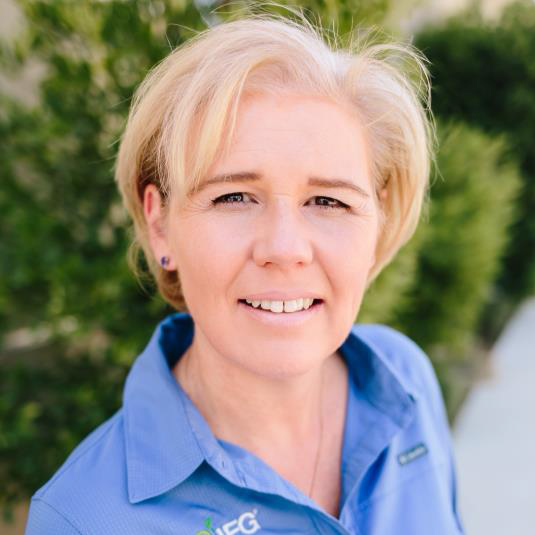IFG’s David Cain awarded Wilder Medal
August 18, 2020 | by Liam O'Callaghan
Founder of the California-based plant breeder was recognised for his contributions to fruit breeding
David Cain, founder and chief plant breeder of International Fruit Genetics (IFG), has been awarded the 2020 Wilder Medal by the American Pomological Society.
The medal was given in recognition of Cain’s contributions throughout his 42-year career in fruit breeding.
Cain has developed or co-developed 94 cultivars of fruits, including 66 table grapes, ten sweet cherries, nine plums, four apricots, four peaches and one nectarine cultivars.
Private Sector Fruit Breeder Wins Pomological Award
August 17, 2020 | by David Eddy
International Fruit Genetics (IFG), one of the world’s largest fruit-breeding companies, has announced that its Founder and Chief Plant Breeder, Dr. David Cain, has been awarded the 2020 Wilder Medal, the highest honor presented by the American Pomological Society. This medal recognizes Dr. Cain’s contributions throughout his 42-year career in fruit breeding.
Dr. Cain has developed or co-developed 94 cultivars of fruits, including 66 table grapes, 10 sweet cherries, nine plums, four apricots, four peaches, and one nectarine cultivar. His developments have had an impact worldwide, being grown on all continents except Antarctica. These developments have resulted in an impressive 75-plus U.S. plant patents, over 20 additional U.S. plant patents applied for, and more than 200 Plant Breeders Rights applications in the world.
IFG unveils creative names, logos for new line of varieties
July 21, 2020 | Euro Fresh
The new table grape brands are designed to capture marketer interest and consumer taste buds
International Fruit Genetics (IFG), the renowned and innovative fruit breeder that changed the way consumers and retailers think of grapes, is adding six new varieties that are poised to further disrupt the produce industry and lead the table grape world with unique shapes and flavours that consumers have come to demand. Unlike typical grape-naming systems that simply reflect seasons or colour, IFG created a new and energizing naming architecture that depicts the essence of these new IFG-bred varieties that explode with tropical flavours, crunch like an apple or elegantly improve older varieties that deserve some revitalization.
Naming New Grape Varieties
July 9, 2020 | ABC 10
Fresh off the success of cotton candy grapes, six new table grape varieties are hitting store shelves, and their names break tradition.
IFG unveils new offerings
July 2, 2020 | Fruitnet.com | by Liam O'Callaghan
Fruit breeder launches six new grape varieties, accompanied by unique names and logos
International Fruit Genetics (IFG) has announced the brand names and logos for six new table grape varieties.
The leading fruit breeder said Gracenote, Kokomo, Julep, Bebop, Quip and Rugby were bred to disrupt the produce industry and capture marketer interest and consumer taste buds.
IFG said it avoided typical grape-naming conventions that reflect seasons or colour, preferring to develop new names to capture the essence and flavour of these new varieties.
Andy Higgins, chief executive of IFG, said the names were just be the first step in capturing the attention of consumers.
“Consumers will be attracted by such unique names and once they taste these new grapes, they will come back for more just as they have with our previous grape varietals,” said Higgins.
IFG grapes and their whimsical names: Bepob, Quip, Rugby
June 29, 2020 | The Packer | Chris Koger
International Fruit Genetics, Bakersfield, Calif., is adding six grape varieties with unique flavors and shapes to its lineup.
CEO Andy Higgins said consumers are attracted to the unique names of the grapes.
“Consumers will be attracted by such unique names and once they taste these new grapes, they will come back for more just as they have with our previous grape varietals,” he said in a news release. “Consumers are searching for nutritious, high-quality grapes with excellent taste, and IFG’s breeding program is designed to deliver what consumers want.”

IFG Unveils Creative Names, Logos for New Line of Table Grape Varieties Designed to Capture Marketer Interest and Consumer Taste Buds
June 29, 2020
BAKERSFIELD, CALIF. – International Fruit Genetics (IFG), the renowned and innovative fruit breeder that changed the way consumers and retailers think of grapes, is adding six new varieties that are poised to further disrupt the produce industry and lead the table grape world with unique shapes and flavors that consumers have come to demand.
Unlike typical grape-naming systems that simply reflect seasons or color, IFG created a new and energizing naming architecture that depicts the essence of these new IFG-bred varieties that explode with tropical flavors, crunch like an apple or elegantly improve older varieties that deserve some revitalization.
“Consumers will be attracted by such unique names and once they taste these new grapes, they will come back for more just as they have with our previous grape varietals. Consumers are searching for nutritious, high-quality grapes with excellent taste, and IFG’s breeding program is designed to deliver what consumers want,” said Andy Higgins, CEO of IFG. “IFG is pleased to announce the following new varieties which are currently being trialed in various parts of the world with IFG-licensed growers. Expect to find more of these invigorating new varieties as the seasons roll out in the various regions.”
International Fruit Genetics works to protect intellectual property in China
May 6, 2020 | Fresh Plaza
International Fruit Genetics, LLC, has taken steps to protect its intellectual property in China. The California-based company is the sole and unique proprietor of different table grape varieties, such as IFG Six (Sweet Sapphire™), IFG Eleven (Sugar Crisp™), IFG Sixteen (Sweet Favors™), and IFG Seventeen (Sweet Joy™).
In recent years, IFG has kept a close eye on the Chinese market, and has undertaken a series of activities aimed at combating counterfeiting and other intellectual property infringement acts against IFG grape varieties in grapevine production and trading.
From Grapes to Porn: The Growing Challenge of Landing an Original Brand Name
February 18, 2020 | KQED | By Sam Harnett
Porn stars are not business entities that Andy Higgins thought he’d ever have to compete with for a name.
Higgins is CEO of IFG, a Bakersfield company that develops new breeds of fruit, particularly table grapes, sweet cherries and raisins. For one of their new grape varieties, IFG wanted to use the name Candy Charms. But they had to abandon that plan after they discovered the name had already been claimed by a porn star with a large online presence and brand.
“So now we’re kind of googling the porn industry as well when we get into the naming process,” Higgins said. “It’s obviously a big industry and not one that would be on our radar.”
How are cotton candy grapes made?
September 11, 2019 | www.mic.com | By: Melissa Pandika
Biting into Cotton Candy grapes feels like having a crush on a cartoon character as a kid — a little weird, but somehow, right.
Biting into Cotton Candy grapes feels like having a crush on a cartoon character as a kid — a little weird, but somehow, right. They somehow embody spun sugar, but in the form of plump, juicy morsels. I fell hard and fast for them. When I brought some home from Trader Joe’s last night, I couldn’t stop popping them into my mouth (despite definitely being full on tacos). In fact, I’m noshing on frozen Cotton Candy grapes as of this writing. (Frozen, they taste a bit like strawberry sherbet.) Major grocery stores, like Trader Joe’s, Sam’s Club, and Publix, carry them, typically from around August to October, so if you haven’t tried them yet, do yourself a favor.
What wizardry could imbue the humble grape with such a whimsical flavor? To find out, I asked the wizard himself, David Cain, co-founder of International Fruit Genetics (IFG) in Bakersfield, California, who led the team that developed the Cotton Candy grape. He tells me his team didn’t even set out to create a grape reminiscent of the county fair confection. And the scary delicious flavor doesn’t even come from genetic engineering or artificial flavoring, as I first suspected. Cotton Candy was just the serendipitous result of breeding East and West Coast grape species using traditional methods.
© 2021 International Fruit Genetics. All Rights Reserved.
IFG • 8224 Espresso Drive, Suite 200 • Bakersfield, CA 93312 • USA















